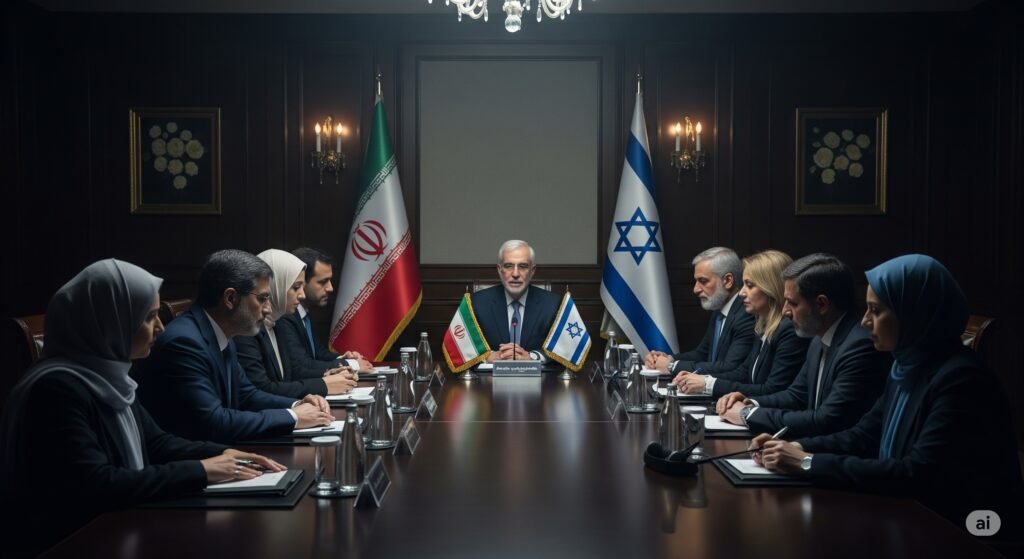Amidst regional tensions, Iran appears to be signaling a shift, expressing a desire to de-escalate hostilities with Israel and explore diplomatic avenues. What does this mean for the Middle East?
The recent climate in the Middle East has been fraught with tension, particularly in the relationship between Iran and Israel. However, a noticeable shift in rhetoric and potential actions from Tehran suggests a possible pivot towards de-escalation and negotiation. This development, while still unfolding, carries significant implications for the stability of the region and the broader international landscape.
A Change in Tone?
Recent signals from Iran point towards a potential recalibration of its approach to the ongoing tensions with Israel. This shift doesn’t necessarily indicate a complete abandonment of long-held positions, but rather a pragmatic acknowledgment of the current realities and the potential benefits of reducing the immediate threat of conflict. This could manifest in several ways:
- Softer Rhetoric: A noticeable decrease in aggressive public statements and threats.
- Emphasis on Diplomacy: Increased openness to indirect talks or mediation efforts facilitated by other nations.
- Focus on Internal Issues: A potential prioritization of domestic challenges, including economic concerns, over external confrontations.
Why the Potential Shift?
Several factors could be contributing to this apparent change in Iran’s stance. Understanding these underlying reasons is crucial to interpreting the significance and potential longevity of this de-escalatory signal:
- Economic Pressures: Years of sanctions and internal economic challenges may be pushing Iran to seek a less confrontational foreign policy that could potentially lead to some sanctions relief or increased economic stability. Think of it like a household budget – sometimes you need to cut back on expenses, and for a nation, that could mean reducing costly external conflicts.
- Regional Dynamics: Shifting alliances and the involvement of other global powers in the region might be influencing Iran’s calculations. The complexities of the Middle East often require a nuanced approach to avoid unintended escalations.
- Domestic Considerations: Internal political dynamics and public sentiment could also play a role in shaping the government’s foreign policy decisions. Just like in the U.S., public opinion can influence political decisions, especially when it comes to matters of war and peace.
What Does This Mean for the Region?
If Iran genuinely pursues a path of de-escalation and negotiation, the potential positive impacts on the Middle East could be substantial:
- Reduced Risk of Direct Conflict: The most immediate benefit would be a lowering of the risk of direct military confrontation between Iran and Israel, which could have devastating consequences for the entire region. This is akin to neighbors agreeing to settle disputes peacefully rather than resorting to physical altercations.
- Space for Diplomacy: De-escalation could create much-needed space for diplomatic efforts to address the underlying issues fueling the conflict. Think of it as clearing the air so that productive conversations can actually take place.
- Potential for Broader Stability: A reduction in tensions between these two key players could have a ripple effect, contributing to greater stability and security across the Middle East. This could allow other nations in the region to focus on their own development and well-being.
Looking Ahead
While the signals from Iran are noteworthy, it’s crucial to approach this development with cautious optimism. Actions will ultimately speak louder than words, and the path towards genuine de-escalation and negotiation is likely to be complex and potentially fraught with challenges. However, this apparent willingness to step back from the brink offers a glimmer of hope for a less volatile future in a region that has long been plagued by conflict. For the United States, this could present an opportunity to support diplomatic efforts and encourage a more stable and peaceful Middle East, which ultimately serves our own national interests.











